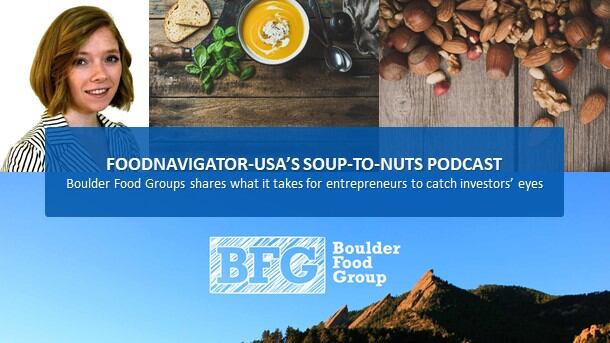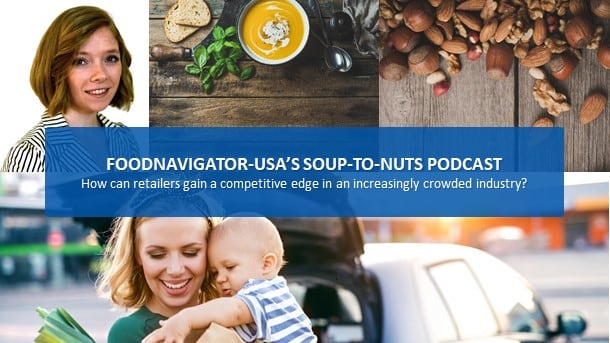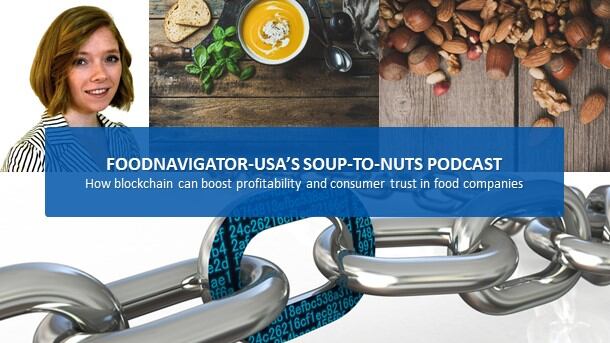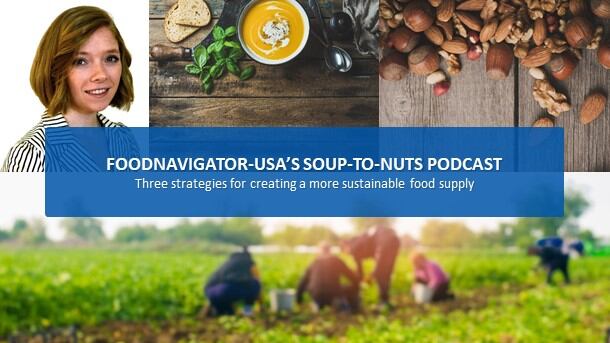According to research from CB Insights, the number of investors in the food and beverage sector tripled from 2013 to 2017, jumping from 128 to more than 450 players who range from venture capital funds, private equity firms, corporations and angel investors.
The amount of money they are investing in the sector also is going up. Food + Tech Connect reported that venture capitalists sunk $1.08 billion across 99 deals in the food and beverage space in 2017, which is up 87.8% from the 66 deals that Dow Jones Venture Sources reported in 2016.
But what does it take for entrepreneurs to catch the eye of these investors and to find a strategic partnership that is the right fit? In this episode of FoodNavigator-USA’s Soup-To-Nuts Podcast, the co-founder of the venture capital group Boulder Food Group Tom Spier shares what his team is looking for in early stage food and beverage companies as part of its recently announced second fund.
What sets BFG apart from other investors?
Earlier this year, Boulder Food Group closed its oversubscribed second fund at more than $100 million and doing so opened the door for as many as dozen food and beverage startups to secure the capital and guidance they need to break out from the competition and scale up.
As Spier explained, much of the fund comes from sources who previously entrusted Boulder Food Group with capital in its first fund, which was worth $50 million. He added that this validates the VC firm’s ability to make wise investments and help young companies succeed. He also notes that some of the fund’s limited partners bring more to the table than just capital.
For example, one of the group’s LPs is the Dutch bank Rabobank, which focuses on food and agriculture around the world and hosts the well-respected FoodBytes! pitch slam.
“That is a unique relationship and it helps us in other ways as well, beyond just the fact they are a great capital partner. They have terrific research, they have a large banking team, they have a lot of resources that we can tap into at times,” all of which benefit the startups that partner with BFG, Spier said.
BFG seeks early-stage, disruptive brands
Boulder Food Group is focused on finding innovative companies that have the potential to disrupt their categories and which are at a much earlier stage than some other investors seek.
“Our goals are to find approximately a dozen great partners that hopefully have incredibly disruptive innovation that will be able to drive a lot of growth and, you know, take a significant portion of market share in whatever market are … the company is working in,” he said.
Other than that clear dictum, Spier says that Boulder Food Group tries to keep an open mind by not limiting where within the food and beverage industry they might find the next breakout company. However, he notes, it does tend to focus more on established categories.
For example, he said, as part of the firm’s first fund, BFG invested in Chameleon Cold Brew, which was one of the first movers in the RTD cold brew segment, but ultimately was still in the well-established coffee category. After just two years, the firm sold the brand to Nestle in 2017.
While the Boulder Food Group remains open to companies from different categories, Spier said, there are a few areas and trends on which that the firm is paying close attention, including whole foods that serves as the foundation for leading diets such as keto and paleo. In addition, he noted, CBD and plant-based alternatives are interest areas.
Other hot trends, including sugar reduction, high fiber, prebiotics and gut health, also are reflected in Boulder Food Group’s first investment from its second fund: Olipop.
“Olipop is a low-sugar soda alternative and it is sold in cans, so similar to a traditional kind of soda company,” but its products are high in prebiotics so it taps into the consumer demand for a healthy gut, which “is really a key to the investment,” Spier said.
BGF looks for business fundamentals
Beyond the actual product or brand and how it fits into macro trends, Spier said the Boulder Food Group evaluates potential investments based in part on their growth rate and profit margins.
Having a 50% growth rate is “impressive,” while growing slower the category is a red flag, he said.
As for margins, he says the group likes to see a manufacturing margin of at least 50%, although there is wiggle room if the company has made a move that temporarily has it operating a lower margin but in the long-term will more than make up for it.
Spier also notes that potential investment targets also need to have a clear business plan that is actually written down.
Once a company signs on with Boulder Food Group, Spier says the team is able to provide more than just capital. It can also provide experienced guidance through many common challenges, such as supply chain management, price pack architecture, personnel and organizational structuring and other longer term strategic planning.




